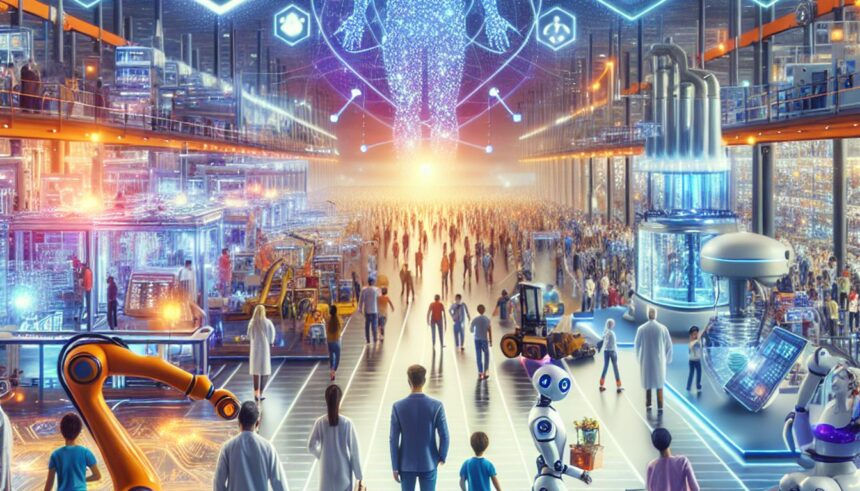Artificial Intelligence (AI) continues to redefine the technological landscape, integrating itself into various sectors with applications that streamline operations and drive innovation. From automating mundane tasks to pioneering advancements in healthcare, AI’s footprint across industries harbors a transformative power that is hard to overlook.
Understanding AI and Its Core Components
At its core, Artificial Intelligence is the simulation of human intelligence processes by machines, particularly computer systems. These processes include learning (acquiring information and the rules for using the information), reasoning (using the rules to reach approximate or definite conclusions), and self-correction. Prominent applications involve expert systems, natural language processing, and speech recognition—facilitated by powerful subclasses like machine learning where systems autonomously learn and improve from experience without being explicitly programmed.
The Role of AI in Automation and Job Creation
One of the most visible impacts of AI is automation. Industries such as manufacturing have seen a shift towards automation that not only speeds up production but also increases precision and efficiency, reducing human error. However, a common misconception is that AI and automation result in significant job losses. While some roles are indeed being automated, AI also creates new job opportunities requiring advanced skill sets, thus shifting the employment landscape rather than diminishing it.
AI in Everyday Life: From Smartphones to Home Assistants
Artificial Intelligence has seamlessly integrated into daily life. Smartphone features such as voice-activated personal assistants use AI to interpret and respond to user commands. Home automation systems can learn a resident’s preferences and adjust settings accordingly, providing unprecedented convenience and energy efficiency. These applications illustrate AI’s role not just in reshaping industries, but in enhancing day-to-day experiences.
ChatGPT and Advanced AI Interactions
A recent headline-maker in the realm of AI is ChatGPT, a model designed by OpenAI, which can generate human-like text based on the prompts it receives. This technology not only powers straightforward task automation but also complex interactions that require a deep understanding of language and context, positioning AI as an invaluable partner in customer service, content creation, and even education.
AI and Big Data: A Symbiotic Relationship
Data is the lifeblood of AI. The relationship between big data and AI is symbiotic, as AI systems require massive amounts of data to learn and make informed decisions. Industries leveraging this relationship, such as finance and healthcare, use AI to analyze trends, predict outcomes, and provide analytical solutions that were previously impossible at such a scale.
Future Trends in AI: Ethical Considerations and Beyond
The future of AI promises even greater integration into our lives, but this brings forth ethical considerations. Issues such as privacy, security, and the moral implications of AI decisions are at the forefront of discussions about AI’s future. As AI systems grow more complex, ensuring these systems make ethical decisions is paramount. A commitment to transparent, responsible AI usage will be essential as we step into a future where AI’s role in society will likely be even more pervasive and influential.
Charting the Path Forward
As AI continues to evolve, staying informed and adaptively integrating AI applications will be vital for businesses and individuals alike. The intersection of AI with fields like quantum computing and biotechnology hints at a future where its potential applications are boundless. For those looking to understand or invest in AI, focusing on innovation, ethical AI usage, and continuous education will be key to navigating this rapidly advancing field.
Disclaimer: The opinions expressed in this article are those of the author and do not necessarily reflect the official stance of Jambura News. Readers are encouraged to verify the information before making decisions related to technology investments or implementations.







